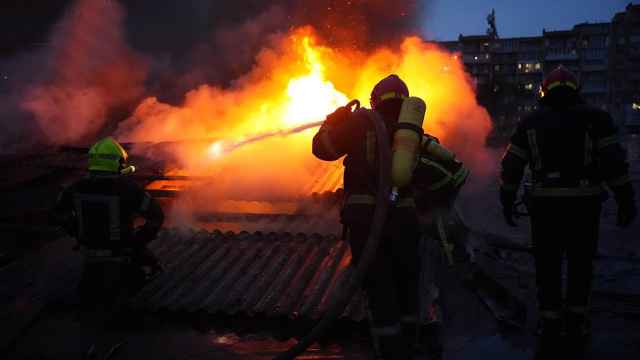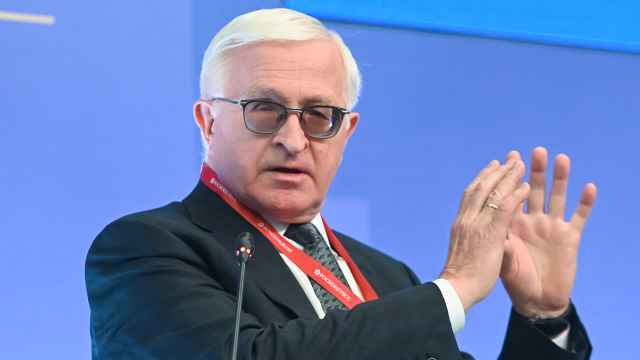Russian petrochemical firm Sibur expects a drop in demand for its products from the construction and auto sectors as the country's economy slows, its chief executive said.
The Russian economy is expected to shrink by more than four percent this year if oil prices stay at around their current level of $50 per barrel. Russian companies are also struggling with funding because of Western sanctions imposed on Russia over its actions in Ukraine.
"So far we are not seeing a serious drop in demand but we are concerned that in the second and third quarter, when we usually see a seasonal spike in demand, it could be negative," Dmitry Konov said on the sidelines of the World Economic Forum in Davos.
Privately-held Sibur is Russia's biggest processor of associated petroleum gas and a leading producer of petrochemicals that includes packaging for consumer goods, as well as products for the automotive and construction industries such as tyres, plastics or insulation materials.
Konov said he expected the construction and car industries would be more affected than other areas by Russia's slowdown.
"People will keep buying water, juice and yoghurt. But they won't buy cars, tyres and they most likely won't build new homes because there will be a lack of financing for both builders and buyers," he said.
But Konov said he was not expecting mass layoffs at Sibur, which has cut the number of employees to around 26,000 from 100,000 over the past decade to restructure the company and triple output.
He also said the firm's capital spending program would be extended over a longer period of time to save some resources. He saw no need to cut spending because the weak ruble was reducing the cost of buying energy and transport, while a fall in the euro was also making some euro-denominated equipment supply contracts more affordable.
Konov said petrochemical prices in general had not fallen as steeply as oil. But he also did not expect energy prices to recover quickly because the current energy glut arising from overproduction was more acute, unlike in 2008-2009.
A Message from The Moscow Times:
Dear readers,
We are facing unprecedented challenges. Russia's Prosecutor General's Office has designated The Moscow Times as an "undesirable" organization, criminalizing our work and putting our staff at risk of prosecution. This follows our earlier unjust labeling as a "foreign agent."
These actions are direct attempts to silence independent journalism in Russia. The authorities claim our work "discredits the decisions of the Russian leadership." We see things differently: we strive to provide accurate, unbiased reporting on Russia.
We, the journalists of The Moscow Times, refuse to be silenced. But to continue our work, we need your help.
Your support, no matter how small, makes a world of difference. If you can, please support us monthly starting from just $2. It's quick to set up, and every contribution makes a significant impact.
By supporting The Moscow Times, you're defending open, independent journalism in the face of repression. Thank you for standing with us.
Remind me later.






